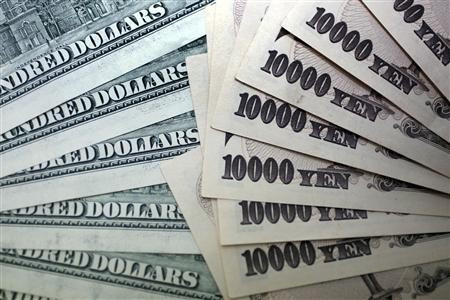Japan Posts Largest Ever Trade Deficit of £49 Billion in 2012 as Exports Suffer
Exports fall for the seven straight months

Japan has posted a record-high trade deficit for 2012, after the country's exports were hit by lower demand from crisis-hit Europe and a political row with China.
The annual trade gap rose to 6.9tn yen ($78bn, £49bn, €59bn) as against the 2.6tn deficit recorded in 2011, according to Japan's Ministry of Finance.
Yearly exports declined by 2.7 percent to 63.7tn yen, while imports increased by 3.8 percent to 70.7tn yen.
In December, Japan recorded a trade deficit of 641.5bn yen, wider than 208.3bn deficit recorded 12 months previously. Exports declined 5.8 percent to 5.3tn yen in December, while imports rose 1.9 percent to 5.9tn yen.
The record trade deficit comes following the newly-elected Prime Minister Shinzo Abe's promises to take measures to boost the economy. Japan's central bank has recently announced a monetary stimulus to spur growth in the economy.
Japanese exports have been falling for seven consecutive months, as the yen strengthened against the US dollar and the euro, making its products more expensive overseas.
In addition, exports have suffered from a sluggish demand from debt-laden Europe and a territorial dispute with China that resulted in a boycott of Japanese products on the mainland.
Japan recorded an annual deficit of 139.7bn yen to the European Union, while its deficit with China doubled to a record 3.52tn yen.
With a view to tackling the high value of the yen and continued deflation in the country, Abe has pressed the central bank to take bold monetary easing policies. As a result, the Bank of Japan doubled its inflation target to 2 percent earlier this week and promised an open-ended asset buying programme from 2014.
Further, the country is struggling with its rising imports especially due to its increased energy needs, following the abandonment of its nuclear power plants in the aftermath of the earthquake and tsunami in 2011.
Before the atomic crisis at Fukushima, the world's third-largest economy relied on nuclear energy for about 30 percent of its power needs.
© Copyright IBTimes 2025. All rights reserved.






















